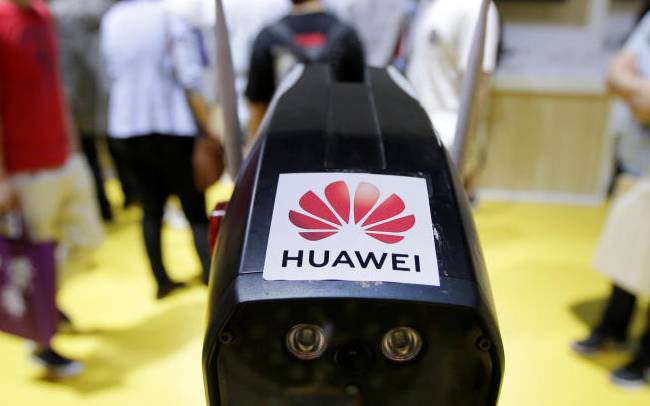×
The Standard e-Paper
Join Thousands Daily

A security robot with Huawei 5G technology is displayed at an exhibition during the World Intelligence Congress in Tianjin, China May 16, 2019. [Reuters]
As Americans and the Chinese fight over who will control the Internet as part of a wider geopolitical war for dominance, Kenya has cleared hurdles for the rollout of the fastest internet service.